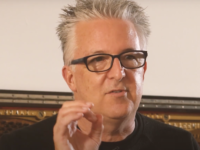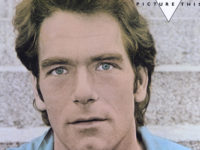One wonders what’s cooler: talking about listening to the 17-year-old Lorde or actually listening to the 17-year-old Lorde? Pure Heroine, the debut from the New Zealand singer, is surrounded with so much hype that it can be hard to imagine there’s actually a record underneath waiting to emerge.
For those unsurprised at the profundity of teenagers, much of this minimalistic album will come as no great wonder. Not every adolescent mindlessly adores Justin Bieber or Katy Perry — and Lorde seems to have effortlessly captured the generational rebellion niche. But does that make Ella Yelich-O’Connor, daughter of poet Sonja Yelich, a ground-breaking artist or just the latest to fit the role?
The good news is that she doesn’t have to be either.
Not for nothing, but one gets the impression that Lorde is bored to tears by the whole thing and that’s a big part of what floats Pure Heroine. There’s a certain level of thrill to it, without question, but for the most part the record is drowning in the brand of teenaged ennui that spills over onto social networking platforms the world over.
Lorde’s quality comes in realizing that her experiences are burgeoning but still intrinsically incomplete. With “Tennis Court,” she talks about taking her first plane trip without sounding too excited about it. She jams in a series of hip-hop clichés over minimalistic, dark-wave production, coming off like a shadow-soaked Miley Cyrus.
These sorts of enjoyable “incongruities” are all over Pure Heroine. Lorde decries consumerism while revelling in it. She takes on the responsibility of a superwoman while still wanting to fuck around as a teenager. She craves attention and she wants to be overlooked. If Lorde is a stuck-up and cynical teen in places, she’s a gobsmacked and ebullient youngster in others.
What separates Pure Heroine from looking like a pool of Facebook wall posts is Yelich-O’Connor’s insistence on living in seemingly incompatible spaces and, as “Royals” notes, yearning for a “different kind of buzz.” This buzz is, at least in part, deeply acquainted with the passage of time. Lorde is fascinated by totality.
In “Ribs,” she seems preoccupied with a spilled drink until she widens the view. “I’ve never felt more alone,” she intones. “It feels so scary getting old.” There’s also “White Teeth Teens,” a piece that boldly tracks a bleak doo-wop beat under lyrics about the inevitable crush of trivialities. Once again, the superficial opens a door to what’s behind the curtain.
Is Lorde the new savior of pop music? For her sake, let’s hope not. The transitory nature of being the next big thing until the next next big thing moseys along doesn’t seem like a shoe she’s willing to wear. As she notes on “A World Alone,” “the people are talking” but there’s something altogether boring about that.
[amazon_enhanced asin=”B00EJU8ZIG” container=”” container_class=”” price=”All” background_color=”FFFFFF” link_color=”000000″ text_color=”0000FF” /]
- The Black Keys Pushed Forward Without Losing Their Way on ‘Turn Blue’ - May 12, 2019
- David Ian’s ‘Valentine’s Day’ Made Romance Romantic Again - February 14, 2019
- Jerry Kalaf – Welcome to Earth (2015) - February 6, 2015




